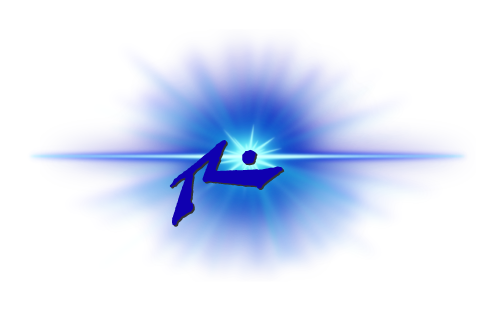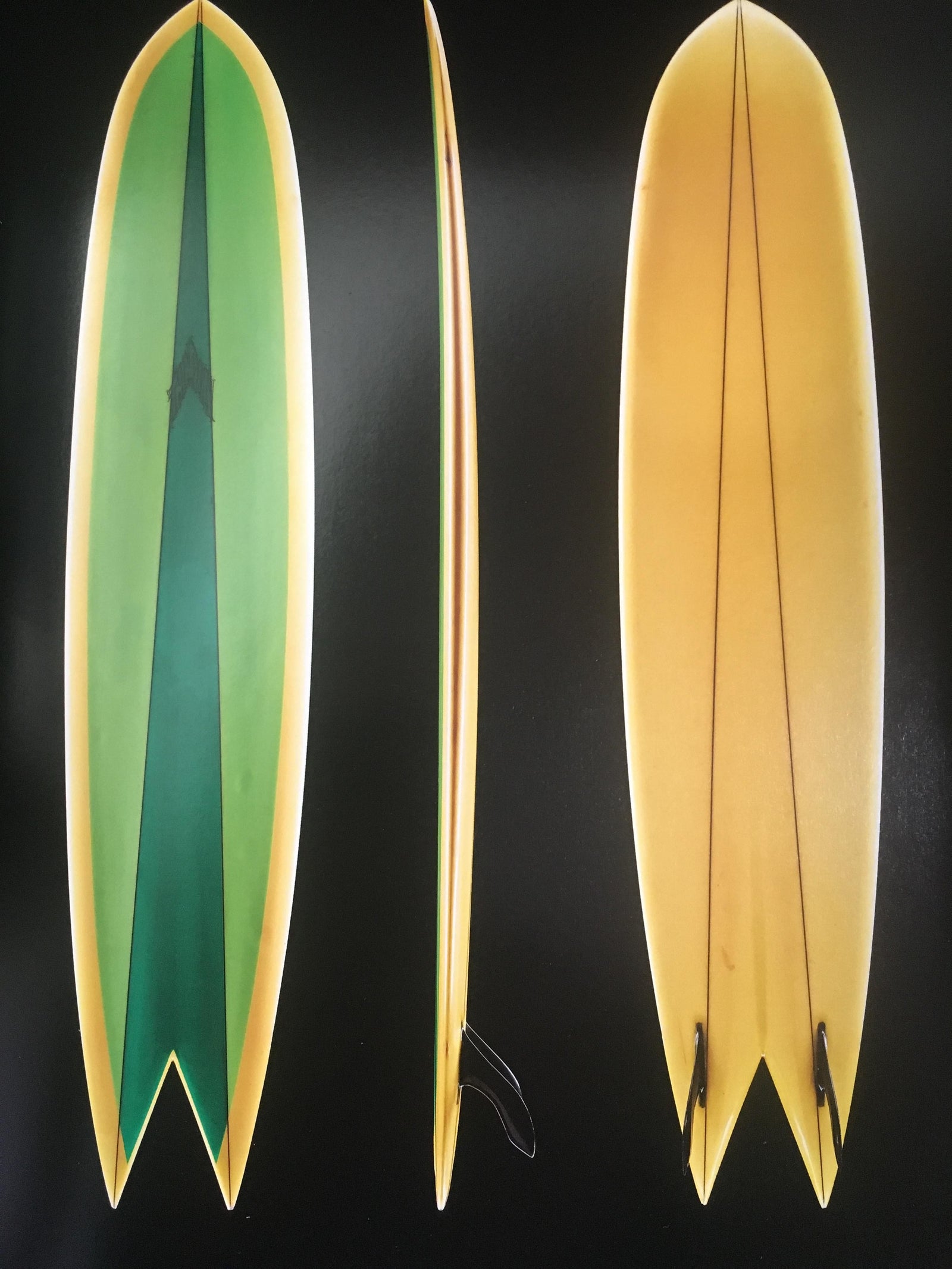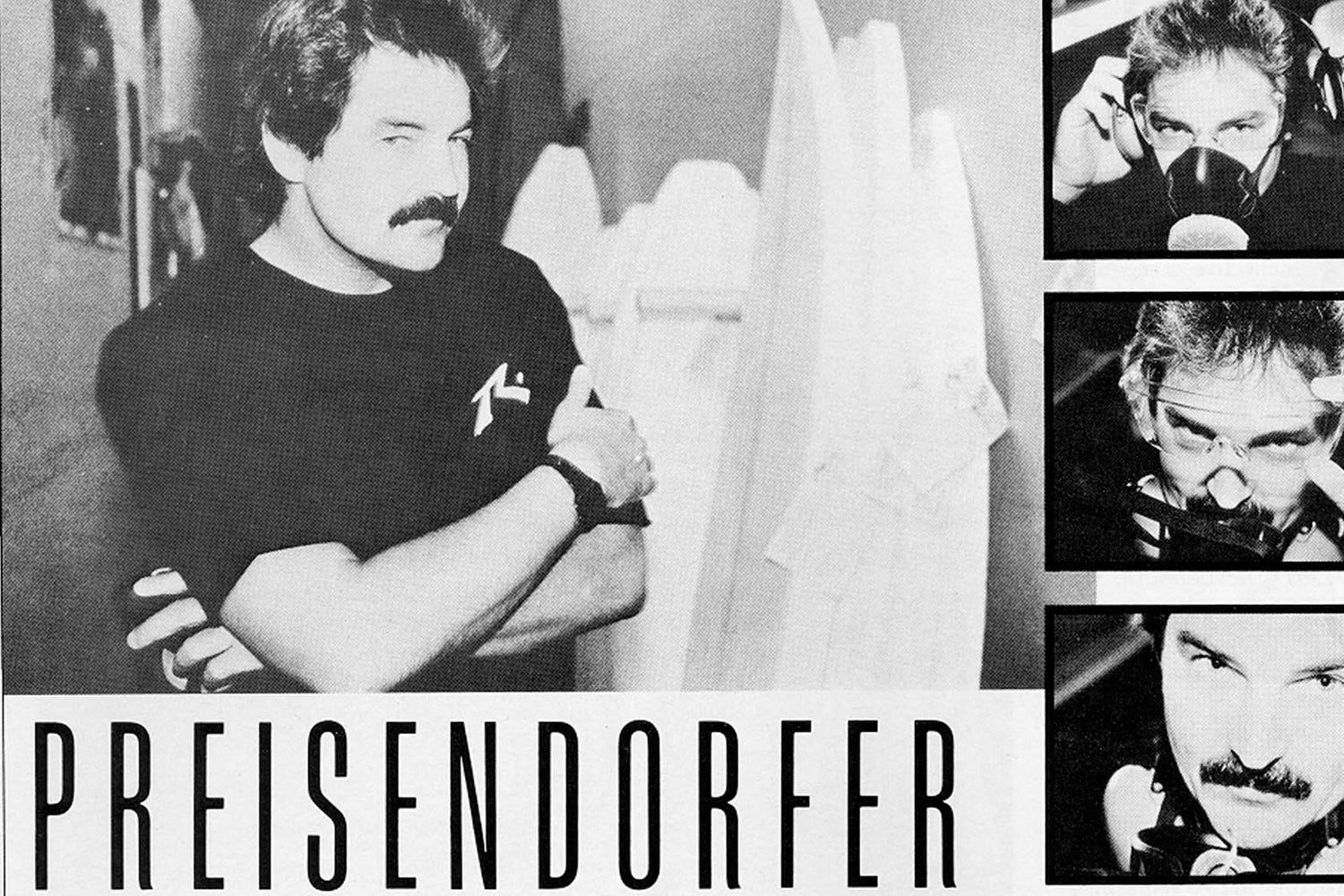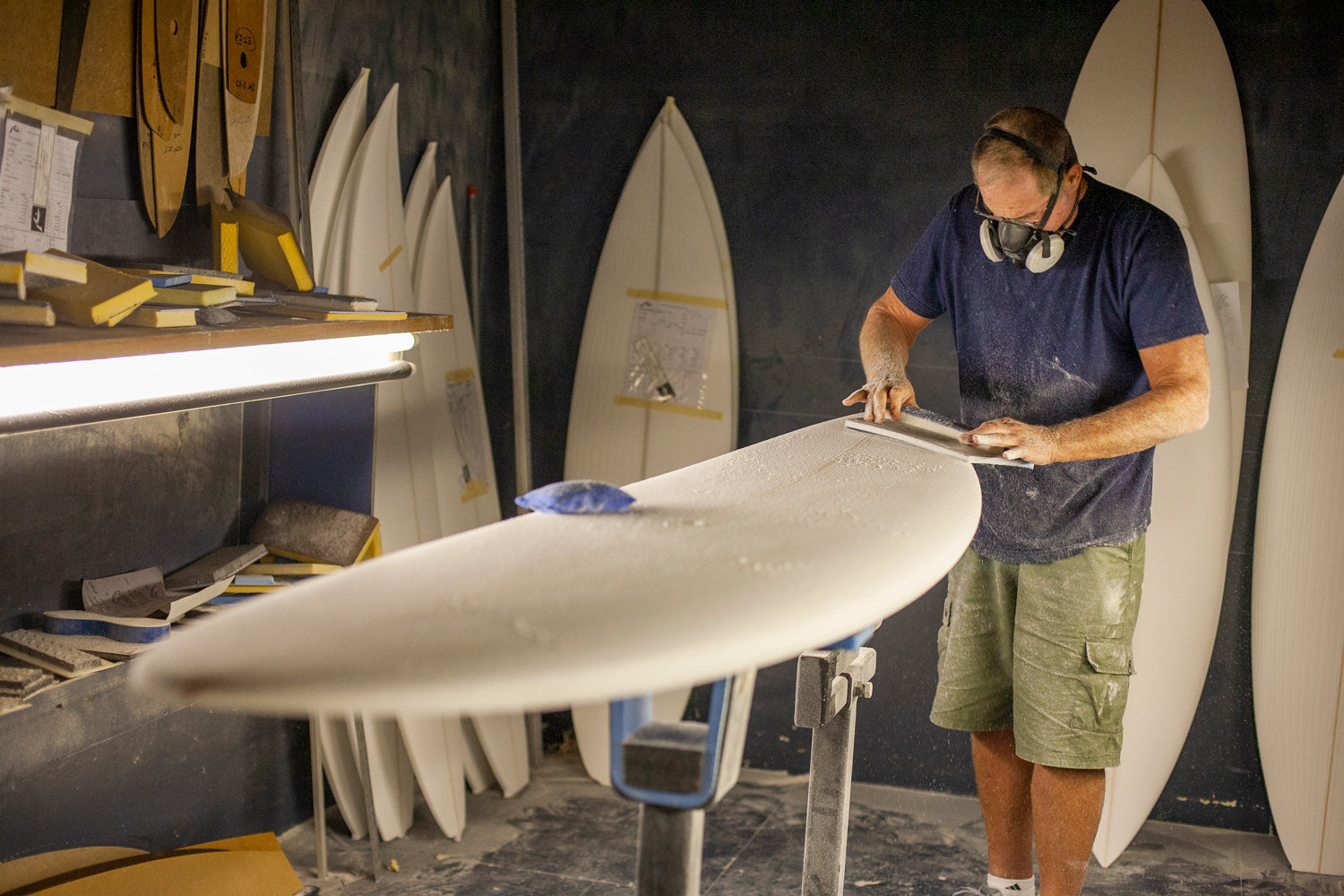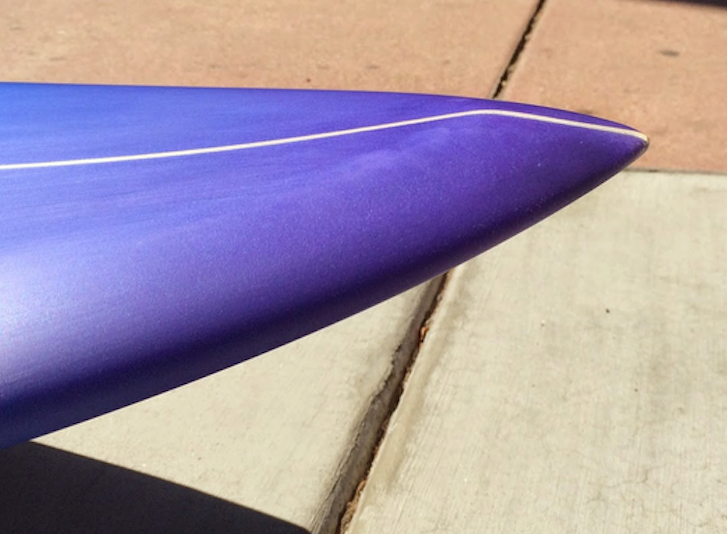WHY DOES YOUR BOARD COST SO MUCH?
By: Rusty Preisendorfer
Early summer of 66.
My family had just moved to La Jolla.
My father was a researcher at Scripps.
PhD in math.
He bought a brand-new house on top of the hill above the Shores.
3200 sq feet for $32,000.
4 years later, my folks sold it and moved to Hawaii (after a year in Carmel.)
How much you ask? $185,000.
What’s it worth now?
$4,000,000 plus.
My point…over time, prices increase.
More for some things than for others.
My first board I bought for $10.
I hadn’t even started surfing yet.
I loved to build things and work with my hands.
I got that from my father.
So, I figured I would lean how to fix dings.
This board was perfect... A perfect mess.
When I first arrived in La Jolla, I bodysurfed.
In the fall of ’66 I realized how cool surfers were.
My first board that I surfed on was a 9’3" Carl EkstromAsymmetrical.
I was left-handed. I don’t know if that had anything to do with my stance, but I started out with my right foot forward.
The board was designed for a regular foot.
I had no idea.
It was in pretty bad shape. The nose was destroyed.
I had very little experience in surfboard repair.
Beyond my capabilities.
I bought the board for $30.
It cost $50 to have it fixed and rideable.
Late summer of 1966, Nat Young won the World Championships in
San Diego on a 9’4" that he designed and shaped, called Magic Sam.
Turns, not nose-riding.
At that time, David Nuuhiwa was considered the best nose-rider.
He got a 10 second nose-ride in the contest. Had a bad stomach flu. Finished a dismal 12th place.
This was an early hint of where design and surfing were headed.
In early 1967, Bing’s Nuuhiwa Lightweight Noserider was “THE” board.
I went with the local heroes.
In the summer of 1967, I ordered my first new board. A custom.
La Jolla Surfboards 8'10" Twin Pin.
At that time a lot of the best surfers in La Jolla were riding Bear Mirandon’s futuristic shapes. His brother Nick did the glassing.
They had a shop at the top of Tourmaline Street.
Rumor has it that Steve Lis got his inspiration from their Twin Fins.
I give them credit for advancing and improving the Simmons Fish.
Virtually all new boards were in the 9-foot range with fins glassed on.
All Glossed and polished.
The average new board cost then was about $200.
Minimum wage was approximately $2 an hour.
Gas was .20 cents a gallon.
50 plus years down the road, gas is now almost $6.00 a gallon.
Give or take.
Do the math.
30 times more expensive.
A new surfboard?
6 feet and change.
Clear sanded finish.
Boxes.
A quality brand made by a reputable builder.
$1000 give or take.
Color?
EPS?
Epoxy?
$1100 plus.
A factor of five.
We ask that our customers pay up in full before the board(s) get started.
Please understand that the margins on surfboards are very small
and it’s really a labor of love.
-Rusty
